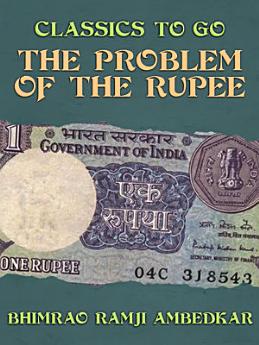The Problem Of The Rupee
ago 2021 · Otbebookpublishing
5.0star
2 opinionesreport
Libro electrónico
341
Páginas
family_home
Apto
info
reportLas calificaciones y opiniones no están verificadas. Más información
Acerca de este libro electrónico
Excerpt: "It is alleged sometimes that India does not want gold coins. I feel considerable difficulty in believing that gold coins of suitable size would not be convenient in a country with the climate and other circumstances of India. The allegation is suspiciously like the old allegation that the "Englishman prefers gold coins to paper," which had no other foundation than the fact that the law prohibited the issue of notes for less than £5 in England and Wales, while in Scotland, Ireland, and almost all other English-speaking countries notes for £1 or less were allowed and circulated freely. It seems much more likely that silver owes its position in India to the decision which the Company made before the system of standard gold and token silver was accidentally evolved in 1816 in England, and long before it was understood: and that the position has been maintained not because Indians dislike gold, but because Europeans like it so well that they cannot bear to part with any of it."
Calificaciones y opiniones
5.0
2 opiniones
Acerca del autor
Bhimrao Ramji Ambedkar (1891-1956), often revered as Babasaheb, was a towering intellectual, social reformer, and the principal architect of the Indian Constitution. Born into a Dalit family in British India, Ambedkar faced severe discrimination, which fueled his lifelong crusade against social injustice and caste oppression. Despite these challenges, he excelled academically, earning doctorates from Columbia University and the London School of Economics.Ambedkar's literary contributions extend beyond his prolific legal and political writings; he was a voracious reader and a profound thinker whose works addressed the socio-economic disparities and the plight of the marginalized. His essays and speeches are a testament to his revolutionary ideas on equality, human rights, and economic reforms. One of his most controversial yet impactful acts was his conversion to Buddhism in 1956, along with millions of his followers, as a form of protest against the caste system. This bold move not only challenged the religious orthodoxy but also inspired contemporary writers and activists to explore themes of social justice and human dignity.Ambedkar's influence on modern India is immeasurable. His ideas continue to resonate, inspiring generations to fight for equality and justice. His legacy as a radical thinker, who envisioned an inclusive and democratic society, remains a cornerstone of India's ongoing struggle for social equity.
Califica este libro electrónico
Cuéntanos lo que piensas.
Información de lectura
Smartphones y tablets
Instala la app de Google Play Libros para Android y iPad/iPhone. Como se sincroniza de manera automática con tu cuenta, te permite leer en línea o sin conexión en cualquier lugar.
Laptops y computadoras
Para escuchar audiolibros adquiridos en Google Play, usa el navegador web de tu computadora.
Lectores electrónicos y otros dispositivos
Para leer en dispositivos de tinta electrónica, como los lectores de libros electrónicos Kobo, deberás descargar un archivo y transferirlo a tu dispositivo. Sigue las instrucciones detalladas que aparecen en el Centro de ayuda para transferir los archivos a lectores de libros electrónicos compatibles.








